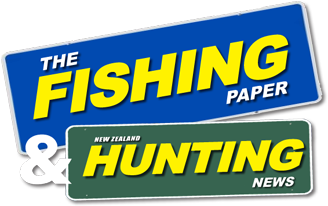Book Reviews » The New Zealand Wilderness Hunter
The New Zealand Wilderness Hunter
By James Passmore
Published by Halcyon Press
Rrp $40
Reviewed by Daryl Crimp
From a great title and strong cover to a cracking opener about assigning personal names to landmarks and thereby taking ownership of New Zealand’s wilderness, this book promises a point of difference in a crowded genre. At the outset James gives a taste of his superb narrative style in setting the scene on what it means to be a wilderness hunter and leaves the reader anticipating some serious ‘off-the-map’ adventure.
He then breaks into a more philosophical bent as he attempts to explain what constitutes a wilderness hunter and here the story briefly becomes convoluted and loses momentum. Similarly, in The Trophy Hunter and Death and the Hunter he attempts to cover complex ideology and debates some interesting points, but gets a bit bogged down at times.
However, his true talent surfaces when you put a rifle in his hand and set him on the muddy trail, because he really hits his straps when describing the hunt or passing on information, such as in Twelve Pointer on the West Coast, Rattling for Fallow Bucks and Pyke River Stag. His writing is crisp, pacey and descriptive, and gives the reader a sense of being there. This is Passmore at his best. Hunting the Hollyford provides an insight into the hard grind and rigors of solo hunting, while his description of a first alpine hunt encapsulates the challenge of tahr hunting nicely, as he tells it like it is, duffed shots and all.
In a couple of chapters he slips into writing in the present tense and, while it gives the reader a sense of experiencing the situation with him in real time, it is risky and makes the book feel more like a compilation of previously written material. In Hidden Falls Stag use of the present tense also allows a bit of melodrama to creep in, which he certainly doesn’t need.
But when on track, even the inherent boredom that comes with long spells of hunting in the wilderness is handled deftly and epitomised through wonderful turn of phrase. When describing being hut-bound for a week due to shitty weather, James states, “It was like being in prison, only there were no other convicts to talk to and you couldn’t get any tattoos.”
I like his writing but does the book deliver on its big promise at the beginning?
I’ll let you be the judge of that!

